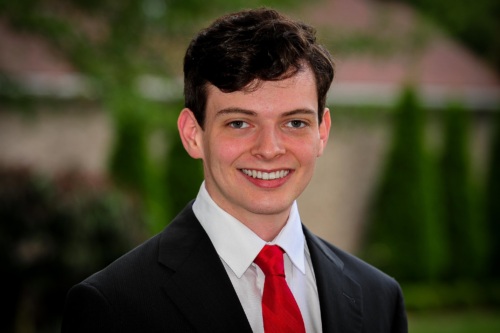
Atomic Pulse
“A Pivotal Juncture:” Ambassador Laura Holgate on the Future of Nuclear Security
The 2023 NTI Nuclear Security Index revealed a concerning lack of attention on the critical issue of nuclear security and an alarming decay in foundational nuclear security norms. Thankfully, the International Atomic Energy Agency’s (IAEA) upcoming 2024 International Conference on Nuclear Security (ICONS) offers governments a rare and much-needed opportunity to address this issue at the ministerial level by reaffirming commitments, sharing technical knowledge, and underscoring the importance of nuclear security.
In the run-up to ICONS, U.S. Ambassador to the Vienna Office of the United Nations and the IAEA Laura Holgate joined NTI Co-Chair and CEO Ernest J. Moniz and Vice President for Nuclear Materials Security Scott Roecker for a conversation on “The Future of Nuclear Security.”
Ambassador Holgate made it clear that ICONS 2024 is “a pivotal juncture.” The growing interest in nuclear energy and radiological technologies from countries striving to meet climate goals makes it even more important that they also pay attention to nuclear security. “The budget for the IAEA’s work on nuclear security is very small compared to the needs. The number and size of donations are on a downward slope,” she said. As quantities of nuclear materials increase, the world is asking more of the IAEA than ever before.
Additionally, Russia’s assault on Ukrainian nuclear facilities has substantially eroded U.S.-Russian cooperation on nuclear security and increased the risk of a nuclear accident. The global nuclear security architecture was not built to manage these trends, and at ICONS, countries need to respond. Ambassador Holgate cautioned:
“We have to look at what’s going on at Zaporizhzhia [Nuclear Power Plant] as not just a threat to those who might fall within its plume, but as a threat to our entire effort to manage climate change if it dampens the current renewal in interest in nuclear energy.”
Ambassador Holgate explained that preventing incidents of sabotage and theft at nuclear facilities requires sustained attention, funding, and political will. “Technical people are limited in what they can do without that senior leadership creating the political space needed to make these major changes,” she said. Nevertheless, there is room for optimism. One place where high-level officials could start is with a consensus ministerial declaration at ICONS, where they could outline shared global nuclear security goals and reaffirm the importance of ongoing dialogue.
In addition to considering emerging nuclear security threats, ICONS will also serve as a platform to advocate for greater diversity in the nuclear field. The IAEA is sponsoring the “Nuclear Security Delegation for the Future” program to assist emerging leaders in attending the conference and publishing their research and there will be an official side event spotlighting the contributions of women leaders to nuclear security. Fostering global talent from diverse backgrounds will undoubtedly help solve these new nuclear security challenges. Ambassador Holgate emphasized, “Environments that are hostile to diversity actually create weaker nuclear security outcomes.”
As more countries seek to develop nuclear energy programs, there will be a greater need for a diverse cohort of nuclear security professionals to make sure this buildout is done safely and securely. The IAEA published the Milestones Approach to help countries consider whether nuclear energy is right for their needs. Ambassador Holgate pointed out that countries will need support to reach these milestones and acknowledged the excellent opportunities ICONS will provide to facilitate these connections. “This is a chance for technical experts to present their work, engage with each other, and build the community of nuclear security policymakers, practitioners, and analysts. This already is a great baseline for success,” she said.
Ultimately, the success of ICONS hinges on the quality of debate and outcomes from the ministerial discussions. If fruitful, ICONS presents an opportunity to identify areas of consensus, revitalize the global dialogue, and reverse negative nuclear security trends. “As we look forward to ICONS and think about what success will look like, we must also think about the important role ICONS can play in shaping our perspectives, discussions, and practices in nuclear security in the years to come,” Ambassador Holgate said.
Stay Informed
Sign up for our newsletter to get the latest on nuclear and biological threats.
